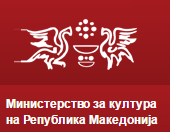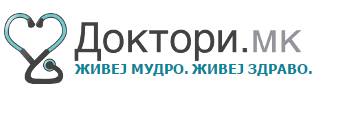|
ПРЕТЕРАНАТА ЗАШТИТА И АДОЛЕСЦЕНТИТЕ СО ФИЗИЧКА ПОПРЕЧЕНОСТ
Симона Р. ОЖЕК
Завод за оспособување
на инвалидна младина Камник,
Словенија
|
|
OVERPROTECTION AND ADOLESCENTS WITH PHYISICAL DISABILITIES
Simona R. OZHEK
Centre for Education and Rehabilitation of Physically Handicapped Children and Adolescents Kamnik, Slovenia
|
|
|
|
|
|
Вовед
|
|
Introduction
|
|
Работата на човек што згрижува во резидентниот Центар за образование и рехабилитација на физички хендикипираните деца и адолесценти, Камник е посебно предизвикувачка, бидејќи младите луѓе со физичка попреченост демонстрираат специфично однесување, што е предмет на интерес. Ова однесување го одразува недостатокот на иницијатива, независност и самодоверба, зависност, лоши работни навики, очекувања кои се паметат итн.
Барајќи одговори на прашањето зошто младите луѓе со физичка попреченост се однесуваат на таков начин, се наметна еден важен фактор за грижата за такви лица - факторот на претераната заштита.
|
|
The work of a carer in the residential Centre for Education and Rehabilitation of Physically Handicapped Children and Adolescents Kamnik is especially challenging, as young people with physical disabilities demonstrate a specific behaviour, which is the subject of interest. This behaviour reflects a lack of initiative, independence and self-confidence, dependence, poor working habits, retentive expectations, etc.
In seeking answers to the question as to why young persons with physical disabilities behave in such a manner, an important factor of caring for such persons was encountered – that of overprotection.
|
|
|
|
|
|
Процесот на одделување и индивидуализација
|
|
The process of separation and individualisation
|
|
Концептот на развојниот процес на одделување и индивидуализација, за кој алудира авторот Margareth S. Mahler, претставува важен теоретски концепт на детскиот развој. Тој нагласува дека детската внатрешна структура се развива преку односот со другите во раното детство со процесот на интернализација (1).
Mahler го идентификува развојниот процес до третата година на детството, кога се јавува таканареченото психолошко раѓање на детето во индивидуа, процесот на одделување и индивидуализација, кој се јавува во следните фази: аутизам (до шестата недела), симбиоза (од шестата недела до шестиот месец), почетокот на одделување и индивидуализација (од шестиот месец до третата година) и крајното одделување и индивидуализација и психолошко раѓање на детето.
Важни фази се симбиозата и психолошкото раѓање на детето, кои вклучуваат четири потфази: диференцијација (од 6. до 10. месец), вежбање (од 10. до 16. месец), приближување (од 1. до 24. месец) и константност на објектот (во 3. година).
Симбиозата е период кога детето не се разликува себе и објектот кој ја претставува неговата заштита од останатиот свет. Детето влегува во симбиозата по два месеци од фазата на аутизам од халуцинирачка неспособост и бара рамнотежа во задоволувањето на потребите.
|
|
The concept of the developmental process of separation and individualisation, alluded to by the author Margareth S. Mahler, represents an important theoretical concept of child development. It emphasises that a child’s internal structure develops through the relationship with others in early childhood by a process of internalisation (1).
Mahler calls the developmental process up to the third year of childhood, when the so-called psychological birth of the infant into an individual occurs, the process of separation and individualisation, which occurs in the following stages: autism (to six weeks), symbiosis (from six weeks to six months), the onset of separation and individualisation (from six months to three years) and final separation and individualisation and the psychological birth of the infant.
The important stages are symbiosis and the onset of separation and individualisation, which comprise four sub-stages: differentiation (from six to 10 months), practicing (from 10 to 16 months), approaching (from 16 to 24 months) and towards the constancy of the object (third year).
Symbiosis is a period when an infant does not distinguish between herself and the object representing her protection against the outside world. The infant enters symbiosis within two months of the autism stage of hallucinatory non-resourcefulness and searching for a balance in need satisfaction.
|
|
Од добра симбиоза детето навлегува во фазата на диференцијација каде почнува да прави разлика меѓу себе и објектот. Потоа следи фазата на вежбање, која е услов за развојот на апаратот за мобилност и детето се свртува од објектот и здобива искуство. При пребарарувањето и експериментирањето детето наидува на опасност, а бидејќи тоа нема чувство дека објектот ќе биде таму кога тоа ќе се најде на оддалеченост, тоа се враќа кон објектот по нова енергија, чувство на сигурност и спокојство за понатамошно вежбање. Ова се нарекува фаза на приближување. Во периодот кога детето вежба, повратната реакција на објектот е многу важна. Претераната заштита или премногу агресивната реакција без поддршка и спокојство, веројатно ќе го попречат развојот. „Претераната заштита и премногу честите предупредувања, како и запоставувањето, се причина детето да биде силно попречено во оваа област“ (2).
Развојот продолжува кон константноста на објектот каде детето ја проверува константноста и ја зацврстува толеранцијата кон стравот од одделување. Во третата година детето стекнува ниво за константноста на објектот, кога неговата личност е интернализирана и така стекнува свој сопствен идентитет.
Дете со физичка попреченост веројатно ќе наиде на тешкотии во фазата на вежбање, бидејќи неговиот апарат за мобилност нема да го оддалечи од објектот и тоа ќе остане во симбиоза со објектот. Заради неподвижноста во оваа фаза, на детето ќе му биде уште потешко да навлезе во следните фази, а одделувањето и индивидуализацијата ќе бидат спречени, а со тоа и градењето на идентитетот, независноста и автономијата.
|
|
From a good symbiosis the infant enters the stage of differentiation where she begins to distinguish between herself and the object. There follows the stage of practicing, which is conditional on the development of the mobility apparatus and the infant turns away from the object and gains experience. In searching and experimenting the infant encounters dangers and as she does not have the feeling that the object will still be there when at a distance, she returns to the object for new energy, a feeling of security and calm for further practicing – this is called the stage of approaching. In the period when the infant is practicing and returning the reaction of the object is very important. Overprotection or too aggressive a reaction without support and calming will probably inhibit development. “Overprotection and too frequent admonishments, as also neglect, cause the child to be strongly inhibited in this area” (2).
Development continues towards the constancy of the object where the infant checks the constancy and strengthens tolerance towards fear of separation. In her third year the infant attains a level of object constancy, when her personality is internalised and so attains her own identity.
A child with physical disabilities will probably run into difficulties in the practising stage, as her mobility apparatus will not carry her from the object and so she will remain in symbiosis with the object. Due to standstill at this stage it will then be more difficult to enter the next stages and separation and individualisation will be thwarted and with this the building of identity, independency and autonomy.
|
|
|
|
|
|
Концептот на претерана заштита
низ емоции
|
|
The concept of overprotection
through emotions
|
|
Важноста на емоциите е битна во адаптацијата на индивидуата кон важни ситуации на кои ќе наидува во животот. За да се адаптира на овие ситуации нејзе ѝ се потребни емоции. Бидејќи нагласката е на важните ситуации, емоциите се директно поврзани со системот за вреднување на индивидуата, бидејќи тие реагираат единствено кога ќе се процени дека извесната вредност на скалата на вредности на индивидуата е потврдена или загрозена.
|
|
The importance of emotions is essentially in the adaptation of the individual to important situations he comes across in life. In order to adapt to these situations he needs emotions. As the emphasis is on important situations, emotions are closely linked to the individual’s value system, as they only respond when it is assessed that a certain value on the individual’s scale of values is confirmed or threatened.
|
|
„Емоцијата е реакција на субјектот кон иритациите, проценета како важна и за која детето е подготвено внатрешно, моторно и мотивирачки за активноста на адаптација“ (3).
Претераната заштита произлегува од заштитничките емоции кои се дефинираат како: „Емоцијата, која е резултат на еден процес со кој стравот се намалува или исчезнува... Стравот често се јавува кај децата, кои заради својата егзистенционална позиција се беспомошни сами да застанат компетентно во светот што ги опкружува. Родителите ги заштитуваат своите деца од светот, а правејќи го тоа им обезбедуваат емоционална заштита. Оваа пријатна емоција во својата содржина е иста со чувството на олеснување кое се искусува откако стравот ќе помине“ (3).
Затоа родителите се одговорни да му дадат заштита на детето кога е потребно, а таа им е потребна на децата како беспомошни суштества. Во ситуации кога детето се соочува со страв, родителот реагира заштитнички. „Ако родителите ги заштитуваат децата од нереални извори на опасност, тоа само ќе го потврди детското нарушено разбирање за реалноста. Потребно е детето да се заштити, но исто така примарно е тоа да се охрабри“ (3).
Тука настанува проблемот кај децата со физичка попреченост, бидејќи тие се помалку мобилни и ним им треба поголема родителска заштита. Сèдодека заштитата е објективна од вистински опасности, кои детето во извесна фаза на развојот не може само да ги надмине, реакцијата е соодветна. Но во случаи на нереална опасност и кога детето е способно само да се справи со неа, а родителите го заштитуваат забранувајќи му извесна активност или тие сами ја изведуваат наместо детето, реакцијата е несоодветна. Таквите несоодветни реакции се нарекуваат претерана заштита. Повеќе автори (4, 5, 6, 7) кои се занимаваат, на овој или оној начин со физичката попреченост, претераната заштита ја сметаат како важен фактор при грижата за децата со физичка попреченост.
|
|
“Emotion is a reaction of the subject to irritations, assessed as important and for which he is prepared viscerally, motorically and motivationally for adaptation activity” (3).
Overprotection arises from protective emotions, which are defined as: “Emotion, which is the result of a process with which fear vanishes or is diminished… In children, who are due to their existential position helpless to stand up for themselves competently in the world surrounding them, fear often appears. Parents protect their children against the world and in doing so provide them with emotional protection. This pleasant emotion is in its content equal to the relief experienced when fear is past” (3).
Parents are therefore responsible for offering the child protection when this is needed and for children as helpless beings this is needed. In situations when the child is faced with fear the parent reacts protectively. “If parents protect the child against unreal sources of danger, this will only corroborate the child’s distorted understanding of reality. It is necessary to protect the child but it is also paramount to embolden him” (3).
Here there appears a problem with children with physical disabilities, as these are less mobile and need more parental protection. As long as this is objective protection against real dangers, which the child in a certain stage of development cannot overcome himself, the reaction is suitable, but in cases where the situation is unreal danger and the child is capable of dealing with it himself but parents protect the child by prohibiting a certain activity or perform it themselves instead of him, the reaction is unsuitable. Such unsuitable reactions are called overprotection. Most authors (4, 5, 6, 7) who deal in one way or another with physical disabilities refer to overprotection as an important factor in caring for children with physical disabilities.
|
|
Претерано заштитен адолесцент
|
|
The overprotected adolescent
|
|
Во однос на процесот на одделување и индивидуализација (2) во случај на претерано заштитничка грижа за децата, основните фундаменти за развој на нивниот идентитет, автономија и независност не се развиени. Во прилог на ова, претераната заштита со себе носи и нарушена слика на реалноста (3).
Може да се претпостави што ќе се случи со детскиот континуиран развој кога детето е оптоварено со зависност, недостаток на независност и нарушена слика на реалноста. Институционалната грижа од професионалец го следи во развојниот период на адолесценцијата кога развојниот процес од првите три години се повторува, само што овој пат во различен контекст.
„За младиот човек објектот е рефернтната група. Тоа нуди во исто време можност за групна поддршка за повлекување од сопственото семејство, но инклузијата во групата му се заканува на неговото кршливо јас, кое може да се уништи во групната култура (или поткултура)“(2).
Младиот човек сега е во симбиоза со групата врсници и не е веќе со мајката, а поволниот резултат од кризата на адолесценцијата сега зависи од способноста на младиот човек да се диференцира од групата и да го повтори одделувањето и индивидуализацијата. Притоа искуството од првите три години игра важна улога при одделувањето од примарниот објект.
„Младиот човек со добро искуство на одделување од примарниот објект ќе ја надмине таквата опасност (закана дека неговото јас ќе се уништи, забелешка на авторот) така што постепено ќе започне диференцијацијата меѓу индивидуите во очигледно несебичната референтна група“(2). Меѓутоа ако младиот човек во својот став кон објектот не стекне позитивно искуство, ќе го изгуби идентитетот во групата.
„Постои опасност младиот човек да го прифати адолесцентното друштво како референтна група која ќе му даде идентитет, меѓутоа неговиот (веќе слаб) идентитет ќе исчезне...Тој не може да се мотивира да се вклучи во извесни активности. Друштвото во кое живее го детерминира неговиот идентитет, наместо неговиот специјален развој на личноста“ (2).
|
|
With respect to the process of separation and individualisation (2) in the case of overprotective care of children the basic foundations for the development of their own identity, autonomy and independence are not developed. In addition to this overprotection carries with it a distorted image of reality (3).
It can be surmised what would happen to a child’s continued development when he is burdened with dependency and lack of independence and a distorted view of reality. An institutional carer encounters him in the developmental period of adolescence when the development process of the first three years is repeated only this time in a different context.
“To the young person the object is the reference group. This offers at the same time an opportunity with group support of withdrawing from his own family but inclusion in the group threatens his fragile self, which could be extinguished in the group culture (or subculture)” (2).
The youth is now in symbiosis with the peer group and no longer with the mother and a favourable outcome from the crisis of adolescence is now dependent on the young person’s capability to differentiate from the group and repeat the separation and individualisation. In this the experience in the first three years plays an important role in the separation from the primary object.
“A youth with a good experience of separation from the primary object will overcome such a threat (the threat that the young person’s self will be extinguished, author’s remark) such that gradually in the apparently selfless reference group differentiation between individuals will begin” (2). If however the young person in his attitude to the primary object does not get a positive experience, he will lose his identity in the group.
“There is a danger that he accepts the adolescent company as a reference group, which gives him identity, his (already weak) identity however disappears… He cannot be motivated to invest in certain activities. The company in which he lives determines his identity, instead of his own special personality developing” (2).
|
|
Однесувањето на младите луѓе набљудувано во згрижувачката работа може да ја има својата основа во неисполнувањето на процесот на одделување и индивидуализација на ниво на однос со примарниот објект. Ова однесување ќе продолжи и ќе се продлабочува, ако за време на адолесценцијата не се случи диференцијацијата во групата што ќе доведе до финално одделување и индивидуализација, кои ќе го донесат неговиот идентитет, а со тоа и автономијата. Каква е можноста тоа да се случи, бидејќи позитивното искуство на одделување од примарниот објект е помалку веројатен кај деца со физичка попреченост, претставува предмет за друга дебата.
|
|
The behaviour of young people observed in care work can have its basis in the non-accomplishment of the process of separation and individualisation at the level of the relationship with the primary object. This behaviour will continue and deepen if the differentiation in the group does not come about in adolescence and with it final separation and individualisation, which will bring about his own identity and with this autonomy. What the chance is that this will occur, as the positive experience of separation from the primary object is less likely in children with physical disabilities, is the subject of another debate.
|
|
|
|
|
|
Заклучок
|
|
Conclusion
|
|
Работата со млади луѓе, кои ние ги проценуваме како претерано заштитени, како што тоа го потврдува и авторот на студијата (8) и други автори (9), зависи многу од разбирањето на нашите улоги и цели. При грижата за младите луѓе со физичка попреченост, независноста станува главна цел која никогаш не треба да се разбере само како незвисност во извршување на секојдневните активности, туку повеќе како автономија со значење да се постават вистинските лични цели што треба да се реализираат со нашиот сопствен напор, да се има внатрешна, вистинска верба во себе, светот и другите и да се влезе во односи каде ние сме еднакво вредни партнери кои не се зависни и кои очекуваат постојана помош.
Во случај на тешко движење и неможност да се надминат архитектонските пречки, како што се скалите, потребна е помош само да се надминат тие, а не тоа да се прави со желби, цели, мислења итн. Бидејќи младиот човек со физичка попреченост како дете е претерано заштитен, тој често е пасивен гледач, а не активен експериментатор, што се должи веројатно на убедувањето на родителите и средината дека тој не е способен за активност. Тој не верува во своите способности, па така всушност станува неспособен.
Од клучна важност за лицето што згрижува е да го научи младиот човек на сè што тој е подготвен и што е соодветно на неговата развојна фаза.
|
|
Work with young people, which we assess as overprotected, as also confirmed by the author’s study (8) and other authors (9) is very dependent on understanding our roles and goals. In caring for young people with physical disabilities independence is made the central goal, which should never be understood as only independence in undertaking day-to-day tasks but more as autonomy in the meaning of setting up real personal goals to be realised with our own effort, to have a built-in, real belief in the self, the world and others and to enter into relationships where we are equal valued partners not dependent and expecting constant assistance. In the case of difficult movement and the impossibility of independently overcoming architectonic obstacles such as stairs, help is needed in overcoming only these and not with wishes, goals, opinions, etc. As the young person with physical disabilities was overprotected as a child he is often a passive bystander and not an active experimenter, principally due to the conviction of the parents and environment that he is not capable for activity. In this he does not believe in his capabilities, so actually becomes incapable.
Of essential importance for the carer is to teach the young person all he is ready for and which is suitable for his stage in development.
|
|
На некој начин лицето што згрижува ја игра улогата на објектот, кое спротивно на примарниот објект, верува во способноста на младиот човек и само го заштитува кога постои вистинска опасност и навистина е неспособен. Од конкретната зависност на младиот човек и потребата за помош, лицето што згрижува го прави тоа што е навистина потребно и не ја зголемува зависноста.
Ако ние, како лица што згрижуваат, сакаме да работиме според теоријата што ја презентиравме, се соочуваме со извесни тешкотии. Најголема е парадоксалната карактеристика на институциите за згрижување. Ние му обезбедуваме на младиот човек учење, стекнување искуство, а со тоа чувство на способност, па постигнувајќи ги нашите цели како лица што згрижуваат, мора да му дозволиме на младиот човек слободна патека да прави грешки и да искуси неуспех, да наиде на тешкотии; со други зборови „да се изгори“ и така да ги искуси своите граници и реалноста во светот. Само на таков начин може да се зголеми независноста. Токму тука институцијата не успева да ја следи професијата и неризикувајќи нешто да му се случи на младиот човек станува заштитничка или претерано заштитничка. На тој начин потврдува дека има декларирана цел за независност, а не е подготвена да ја прифати професионалната одговорност за да ја реализира целта.
|
|
In some way the carer plays the role of the object, which contrary to the primary object, believes in the capability of the young person and only protects him when in real danger and the youth is really incapable. From the young person’s actual dependency and need for assistance the carer does only what is really needed and does not increase dependency.
If we wish as carers to work in accordance with the theory presented, we come across certain difficulties. The greatest is the paradoxical characteristic of care institutions. That we provide the young person learning, acquiring experience and with this a feeling of capability, thus achieving our carers’ goals but must allow the young person a free path to make mistakes and experience non-success, to get into difficulties, in other words “to get burned” and so experience the limits and reality of himself in the world. Only in this way can independence be increased. Here is where the institution does not succeed in following the profession and risking that something might happen to the young person but becomes protective or overprotective, having the declared goal of independence but not prepared to accept professional responsibility in order for the goal to be realised.
|
 SNIP 0.059
SNIP 0.059 IPP 0.07
IPP 0.07 SJR 0.13
SJR 0.13 h5-index 7
h5-index 7 Google-based impact factor: 0.68
Google-based impact factor: 0.68















